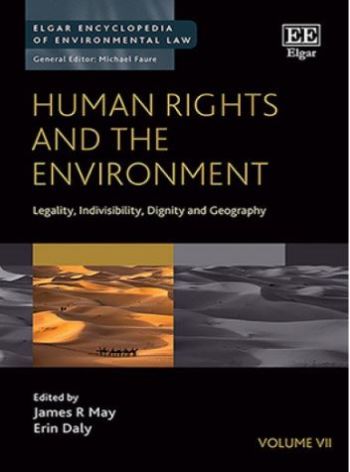
Much has been written, discussed, advocated and litigated about human rights and the environment over the last two decades. With 45 structured entries from a global collection of expert scholars, this volume of the Elgar Encyclopedia of Environmental Law provides an authoritative source of reference and features new commentary on the role of the rule of law in responding to the variegated impacts of environmental challenges on the human condition.
This comprehensive volume offers fresh perspectives to the conversation by focusing especially on four subjects that shed new light on the subject of environmental human rights: the challenges of identifying the fundamental legal sources for the protection of human rights and the environment, the recognition of the indivisibility of human rights and environmental law, the centrality of the right to human dignity as the lodestar of human rights law, and the uniqueness of geographic particularities. Fundamentally, the entries demonstrate that there is much to do, learn and share on this vital topic.
Offering thoughtful critical perspectives on a timely subject, this volume will be an essential resource for academics and students, as well as policymakers and practitioners.